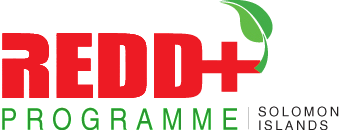Solomon Islands does not have legislation which specifically addresses benefit-sharing and distribution systems for REDD+ activities.
At the national level, the Solomon Islands Government has recently passed the Public Financial Management Act 2013 (in force 10 October 2013) which seeks to create a framework to promote sound public financial management and to encourage the transparent and accountable management of public funds. The Act allows for the national government to create “special funds” in order to manage revenue separately from Consolidated Funds (s. 24). This could potentially be used to manage national REDD+ revenues.
Forest Resources and Timber Utilisation Act
Under the Forest Resources and Timber Utilisation Act [Cap. 40], resource owners are responsible for their own organisation and management of logging revenues at the local level – but this has been highly problematic. The World Bank has recently observed that communities where logging has occurred have a particularly high level of disputes, and that these can be frequently be traced back to the payment and distribution of royalties, rents, or access fees. Benefits are often captured by a small number of elite individuals, typically senior males, who may assert tenuous claims to land and forest ownership (Allen et al, 2013: XI). A different model for benefit-sharing is required to ensure that REDD+ benefits are shared on an equitable and transparent basis.
Protected Areas Act 2010
The new Protected Areas Act 2010 contains a range of more modern provisions which could be used to facilitate benefit-sharing and fund management at the local level. The Act provides guidance for the funds to be managed at the local level by a management committee, including the maintenance of accounts, which must be audited annually (PA Regulations, cl. 60). At least three quarters of the members of a management committee must approve the use of funds and the committee must prepare an annual statement of accounts for viewing by stakeholders and the Minister (cl. 60).
The Protected Areas Act 2010 also contains some provisions which attempt to address the misuse of community benefits for private gain. Including:
Clause 46 Shared Benefits, etc.
1)Any benefit, right or obligation arising out of or in connection with a protected area shall be a common benefit, right or obligation of the landowning tribe and all its members.
2)2) Any decision unilaterally made by a single member of the tribe in relation to a protected area without the general consensus or endorsement of all, or at least a majority of tribal members, shall be invalid.
Options for incorporating landowner groups
Solomon Islands does not have legislation which allows landowning groups to be legally recognised or registered as an incorporated group, such as the model used in Papua New Guinea for creating incorporated land groups (Land Groups Incorporation Act). Nevertheless, there are some existing legal mechanisms that landowners could use to enter into agreements and to facilitate benefit-sharing in Solomon Islands.
The two legal structures generally used by communities who wish to undertake conservation activities on their customary land are:
- A charitable trust under the Charitable Trusts Act [Cap 55]. This is the structure most often used by non-government organisations and community-based organisations in Solomon Islands (see for example the Kolombangara Island Biodiversity Community Association). The trust must be established for a charitable purpose (s. 2). However the Act does not require annual audits and provides limited guidance on financial management or the roles and responsibilities of trustees.
- A community company can be incorporated under the Companies Act 2009. This is essentially a private company with directors and shareholders. The members must have something in common, such as coming from the same area, and having a common objective to promote the community interest (s. 166).

